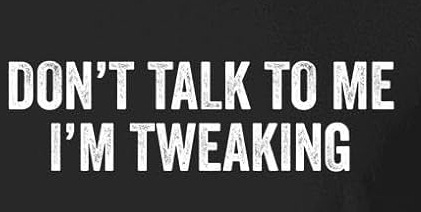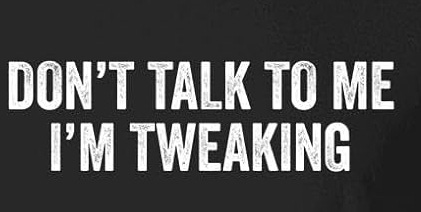Stimulation Check
Our Great Opportunity For Understanding, Awareness and Connection is Threatened By Our Constant Tweaking For Quick Hits of Stimulation
'“Cities no longer belong to the soulful flaneur, but to the wired-up voyeur in his soundproof Lexus. Behind his tinted windows, with his cell phone and CDs, he gets more input, with less static, from more channels, than Baudelaire ever dreamed of.”
— Thomas De Zengotita, Mediated
In the same way that people who have spiritual awakenings can easily lose them to even deeper levels of delusion, moments of massive societal awakenings can get mired in even flashier distractions.
In our current moment, we have seen the awakening of a new left as well as a deeper skepticism of the media than ever before. 1 But we cannot and should not avoid the fact that all this is happening within a media ecosystem that still rewards stimulation and egotistical delusion. The awakening began with shocking videos of the Hamas hostages as well as the footage of Palestinian communities turned to rubble. The latter was rarely shown on American mainstream media, so this led to an awakening of compassion and consciousness.
These are not exciting states of being, so they do not track as well as outrage and reinforcing opinions on TikTok, especially when these videos have now conveniently been censored as “graphic.” Instead of seeing videos of life during wartime, we are left with commentary. Not all of it is bad. Some of it is illuminating, some of it moving. But, as David Brooks says in his new book How to Know a Person: The Art of Seeing Others Deeply and Being Deeply Seen, social media rewards stimulation over intimacy.
And this cannot come at a worse time. A situation like the one in Gaza requires a deep, nuanced understanding. The good news is TikTok is bringing attention to it while most American media outlets haven’t before. But the quality of that attention is limited and we need to be mindful of it.
We may be tempted to say “What else is more important than this conversation? Than this discourse? If social is the only place it is happening…oh well.” The intentions may be good here, but is that what’s really going on? Are we seeking education on new viewpoints or are we seeking validation of what we already know and believe? It is not wrong to be on TikTok. It did help open the world’s eyes. But, like every single thing under capitalism, healthy consumption can go sideways really quick.
TikTok did not invent the stimulation economy, to be sure. It can be argued that as long as there was capitalism, stimulation was a cash crop. But it began reaching dissociative levels in the ‘80s, with the advent of the Walkman, the remote control, the VCR and the GameBoy. When you were bored at home, you could switch channels until you got your stimulation fix. Nothing good on TV tonight? Watch that episode of Airwolf that you taped. Bored with the subway commute to work? Pop in your Walkman and play all those great songs you taped off the radio. 2 And when that’s done, play Tetris on the Gameboy.
The ‘90s expanded the stimulation economy with the Internet’s first killer app: porn. The more people spent their energy engaging with porn, the more jaded and disconnected they became. Sexual expectations became less realistic. We don’t need to look too much deeper at the timeline from here. The history of the Internet itself is the history of the stimulation economy, from Facebook to Tinder.
Many of the social movements even seem to revolve around getting kicks.
Incels. Hustle culture. Looksmaxxing. When someone is involuntarily celibate, the question rarely is about whether their mental health is contributing to this. Nope; gotta hustle to make money and/or go to the gym to get sexy. Then you will get all that stimulating but empty casual sex that you deserve. When you are that extremely online, this is the only grammar that makes sense. Empathy and understanding seem as foreign and unattainable as nirvana and enlightenment.
A term we hear on a lot of these well-intentioned videos is “awareness.” Like “spreading awareness.” But what is the awareness of? Any new ideas? Revelations? What is the quality of this awareness? Is there an awareness that is open to other viewpoints? Is it fueled by deep or shallow attention?
One thing that still excites and inspires me about our current moment is the skepticism of legacy media that is spreading. Since the majority of celebrity opinions being expressed are staunchly pro-Israel, there is a countercultural refusal of pop culture that is spreading. Up until now, nerds fiending for the next Marvel drop were threatening the weirder, quieter, more artsy and intellectual voices out of the conversation. But now, with even the once-mighty Marvel Cinematic Universe crumbling and actors returning from the strike to a completely different world and time, legacy media will take some time to roll with the changes.
But we need it to. To this day, legacy media is the best place for contemplative, deep art. Which is not only needed at times like this, but should come out of times like these.
Further Reading:
Entertaining Ourselves in Automation Nation by Madison Huizinga
How to Know a Person: The Art of Seeing Others Deeply and Being Deeply Seen by David Brooks
Nerd Culture is Murdering Intellectuals by Erik Hoel
Do I know the age of my readership or what?




